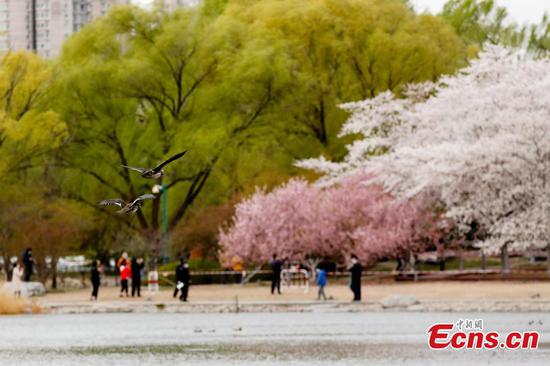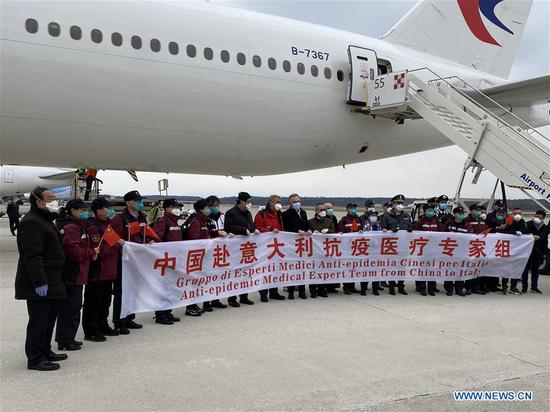TAIPEI Act's signing ignores consensus on one-China principle, officials say
The recent signing of the TAIPEI Act into law by the president of the United States amid the global fight against the novel coronavirus pneumonia pandemic-with the aim of helping Taiwan improve its international presence-has been strongly condemned by Chinese authorities and experts.
"While the world is under the pressure of a global public health crisis and the spirit of globalization and cooperation is needed, the U.S. is stirring up trouble on the Taiwan issue, showing declining leadership and lack of responsibility," said Tian Feilong, a legal scholar with the Law Association for Relations across the Taiwan Straits.
China's top legislature expressed firm opposition on Friday after U.S. President Donald Trump signed the Taiwan Allies International Protection and Enhancement Initiative Act of 2019, which requires the U.S. administration to help Taiwan improve its international presence and participate in international organizations.
The act ignores the one-China principle as a general international consensus and the fact that the U.S. established formal diplomatic ties with China 41 years ago, the Foreign Affairs Committee of the National People's Congress said in a statement.
The signing of the act violates the one-China principle long held by the U.S. government since the establishment of China-U.S. diplomatic ties and the important consensus between the heads of the two countries, the committee said.
The act also seriously disrupts China-U.S. relations and cooperation in major fields and will eventually hurt the interests of the U.S. itself, it added.
"The act calls for blocking other sovereign states from developing normal state-to-state relations with China, which is the logic of flagrant hegemonism," Foreign Ministry spokesman Geng Shuang said on Friday. "We strongly urge the U.S. to correct its mistake and refrain from implementing the act. Otherwise, it will be met with resolute countermeasures from the Chinese side."
The State Council's Taiwan Affairs Office said on Saturday that no force can stop China's national reunification and the separatists' goal of "Taiwan independence" will never be achieved.
The TAIPEI Act is one of the bills passed by the U.S. supporting Taiwan in recent years. Another being the Taiwan Travel Act of 2018, Tian said.
"The U.S. is gradually building its legal system regarding Taiwan as its political ally and protected object," he said. "Such legislation is totally illegal in terms of international jurisprudence. It involves the designation of Taiwan as a 'nation' and directly undermines China's sovereignty and interests.
"It harms the peaceful reunification of the two sides of the Taiwan Straits and the long-term development and people's well-being of Taiwan."
Tian said the effects of the act will depend on the U.S. administration.
"It's normal that such bills turn out to be ineffective because it stems from the fact that the U.S. is neither sincere in international politics nor has absolute power to undermine everything," he said.
The ruling Democratic Progressive Party of Taiwan, under political manipulation of the U.S. and its goal of "independence", had abandoned the vision of peaceful reunification with the mainland in the direction of the one-China principle, leading itself into danger and uncertainty, he added.


















































